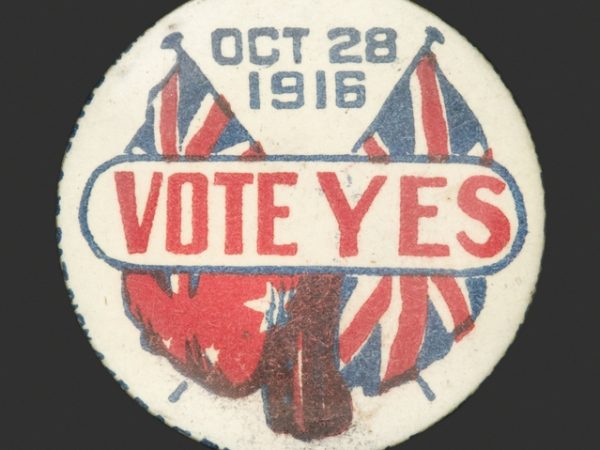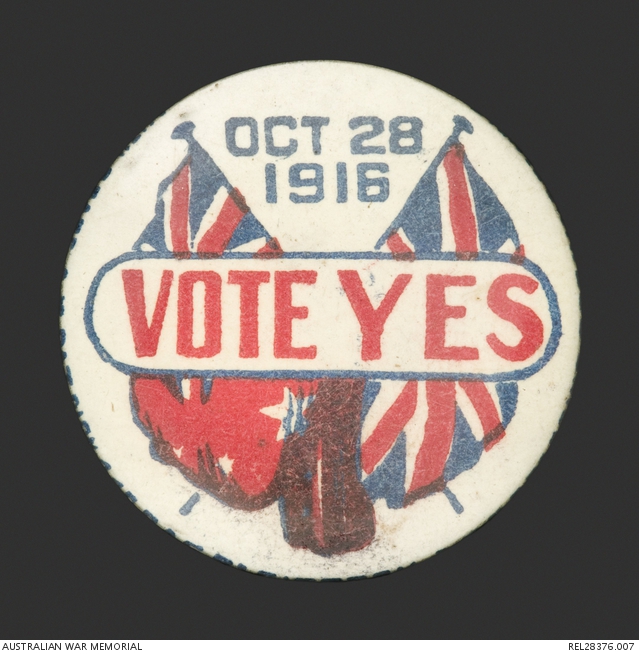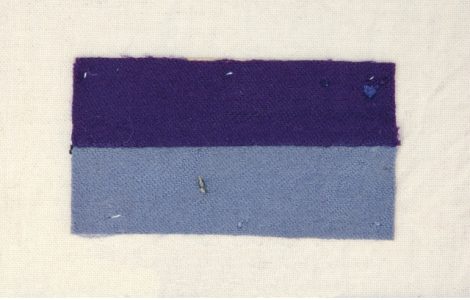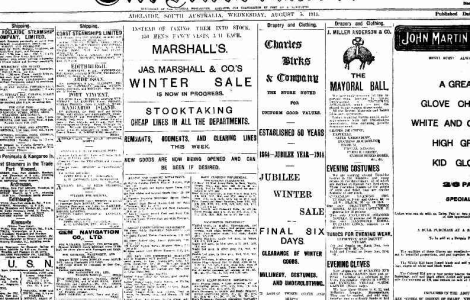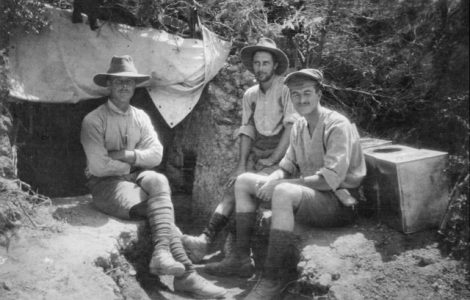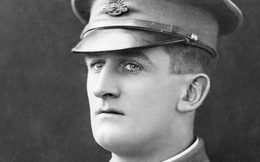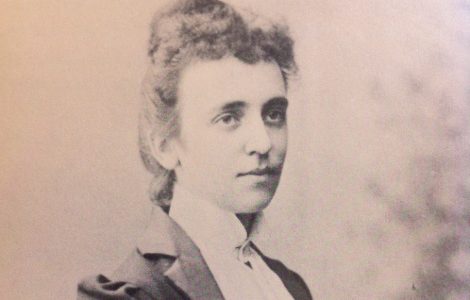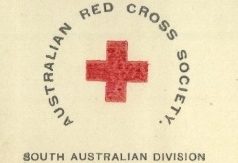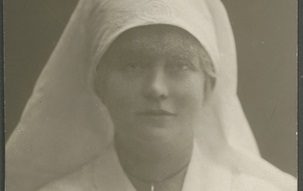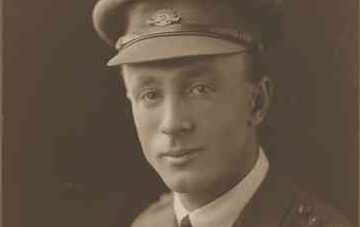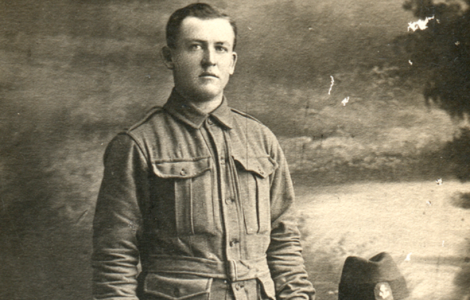October, 1916
In October 1916, South Australians continued to fight in Europe and in the Middle East, but they were also engaged in a desperate fight at home, in the lead up to the conscription referendum on 28 October.
FROM THE SOLDIERS
The European winter was setting in and a number of our soldier correspondents mentioned the cold and the rain. The 10th Battalion diary reveals an easier month near Ypres in Belgium; drilling and training, but not in the frontlines. Leo Terrell had a lucky escape early in the month ‘being blown almost in the door’ by an explosion in the front line trenches. Ross Smith, in the Middle East, was transferred out of the Light Horse and into the Flying Corp. His diary records that he had his first flight – about 20 mins – towards the end of the month.
James Churchill-Smith notes that he wasn’t able to celebrate his 22nd birthday with any flair, but he seemed pretty chuffed with congratulations flowing in from his superiors on the news that he had won a Military Cross and bar. He and the others in the 50th Battalion spent the month training, drilling and playing football. Churchill-Smith also notes that he spent time sitting in on court-martials.
Lou Avery also gave a good deal of attention to the military justice system in October. He began the month visiting family in the UK, but sailed for France early in the month. He seemed enthusiastic – he wrote in his diary ‘Hurrah and 3 big cheers. Look out Kaiser Bill, Louis Bill from Broken Hill is after you’. He received training in topics such as how to survive a gas attack and ‘women and how to avoid them. Good advice if carried out’, he noted. However, things took an unexpected turn when a prisoner escaped while Lou was on guard duty. Lou himself was detained in the ‘clink’ following the event – ‘the most humiliating day of my life’, but he was quickly exonerated, and ‘walked out a free man’.
CONSCRIPTION REFERENDUM
Avery also noted that he had helped at the referendum on conscription. At home, this was a bitter and desperate campaign which divided the nation. The governing Labor party under Prime Minister Billy Hughes was split, with the trade unions opposed to the move that Hughes so strongly supported. The campaign turned violent on numerous occasions, with speakers – including women – being pelted with mud and eggs; the press was censored and the yes and no cases were argued at huge public meetings. Hughes was confident that the soldiers would vote ‘Yes’ and so he arranged for them to vote more than a week before the rest of the nation. They did, in fact, return a ‘Yes’ vote, but it was not convincing, and the result was not made public at the time.
The final result of the poll was a victory to the ‘No’ case, by 72,456 votes – or 3.2%. South Australia, along with New South Wales and Queensland, voted ‘No’.
IN OTHER NEWS
The war continued to dominate the newspapers, with many stories about the looming referendum. The Advertiser also printed a story about women being taken on as clerks in banks, as ‘every male clerk in this bank who is eligible for military service has enlisted’. Yet still there was a significant shortfall. It was reported that nationally there were 14,000 men in camps preparing to embark. Interestingly there were also many more than this number of returned soldiers, mostly wounded or ill. (By the end of the year, there were around 23,000 in this category.)
Fundraising continued – the Cheer-Up Hut opened a new billiard room; and good rains were reported around the state, with a good wheat harvest predicted. Ethel Cooper’s letters from Germany, with tales of friends eating smoked whale meat, reminds us what welcome news a good harvest must have been.
Regular followers of this blog may also recall that in April the family of Lance Alderson had been in correspondence with the Red Cross Information Bureau, who they had contacted seeking news. In October, they received another letter from the Bureau, confirming their worst fears; that Lance had indeed, died of wounds sustained at Gallipoli in May 1915, and had been buried at sea.
Alexandrine Seager’s poem ‘October 1916’ reminds us that it had been two years since the first Australian recruits set sail, in October 1914. The celebrations of that time were a distant memory, as many, many of those young lives had been sacrificed. Despite the result of the conscription referendum, the war was still raging, and Billy Hughes had made commitments on behalf of the nation. This issue would not go away…


